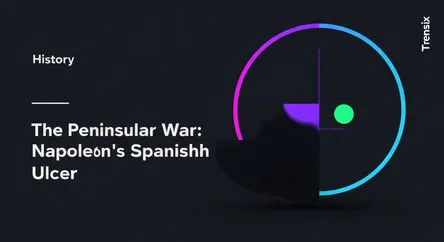History
The Peninsular War: Napoleon's Spanish Ulcer

An overview of the Peninsular War (1807-1814), where Spanish, Portuguese, and British forces fought to end Napoleon's control of the Iberian Peninsula.
What is it?
The Peninsular War (1807–1814) was a military conflict fought on the Iberian Peninsula between Napoleon's French Empire and an alliance of Spain, Portugal, and the United Kingdom. It began when French forces invaded Portugal in 1807 to enforce Napoleon's Continental System, a trade embargo against Britain. The conflict escalated dramatically in 1808 when Napoleon turned on his ally, Spain, deposed the Spanish king, and installed his own brother, Joseph Bonaparte, on the throne. This act provoked a widespread and bloody uprising across Spain.
Why is it trending?
The war is historically significant as one of the first wars of national liberation and for the emergence of large-scale guerrilla warfare, from which the Spanish term for "little war" originates. This brutal insurgency, combined with campaigns by the allied regular armies led by figures like the Duke of Wellington, tied down hundreds of thousands of French troops. Napoleon himself famously called the conflict his "Spanish Ulcer" because it was a massive and continuous drain on French resources and manpower, contributing significantly to the eventual collapse of his empire.
How does it affect people?
The war had devastating consequences for the Iberian Peninsula, causing immense destruction and loss of life. Politically, the struggle against French occupation led to the creation of Spain's liberal Constitution of 1812, a cornerstone of European liberalism. Beyond Europe, the conflict had a profound global impact. The turmoil in Spain weakened its control over its overseas empire, which directly fueled and accelerated the wave of independence movements across Latin America.